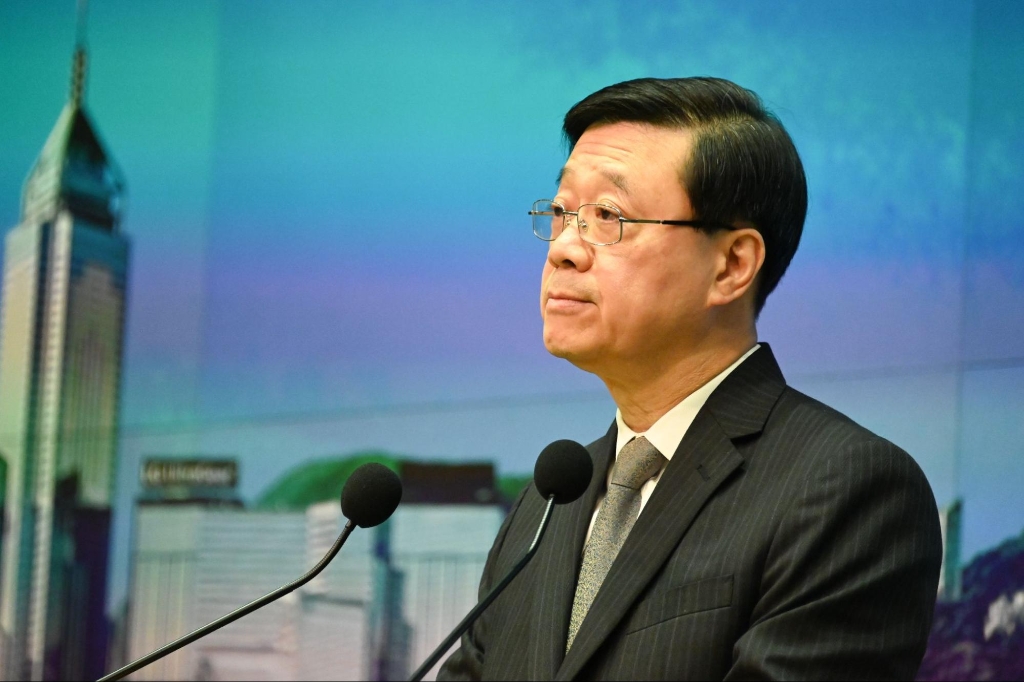By Tu Haiming
By virtue of the fact that Hong Kong is a member economy of the Asia-Pacific Economic Cooperation (APEC), the leader of the Hong Kong Special Administrative Region is expected to attend the group’s 2023 summit to be held in San Francisco this November. However, four US lawmakers — two Democrats and two Republicans, with two of the four from the US House and two from the Senate — have attempted to block Chief Executive John Lee Ka-chiu’s rightful presence at the upcoming APEC meetings, citing US sanctions on him.

According to APEC rules, a summit host has the responsibility to invite leaders of all member economies to attend the APEC summit or meeting to be held in its territory. The US, being the host of this year’s summit, is obligated to facilitate the attendance of leaders of all member economies, including Lee.
The objection raised by the four US lawmakers against Lee’s attendance in the San Francisco summit hardly stands scrutiny. Lee’s presence at the APEC summit is technically not a visit to the US. It is APEC that authorizes the US to invite leaders of all member economies to attend the function. The right to invite participants to the function is vested in APEC instead of the US.
In response to the promulgation and implementation of the National Security Law for Hong Kong in June 2020, Washington imposed sanctions on a number of central government officials and key officials of the HKSAR government, with Lee being one of them, a move seen as direct interference in China’s internal affairs. It’s both the right and obligation of any sovereign state to safeguard its own national security, which is a tenet enshrined in the UN Charter and international law. In fact, the US has many more laws on national security protection in its law books.
If Washington really wishes to pursue economic cooperation with China, there is no reason at all for the US to try to embarrass Beijing by denying Lee access to the upcoming APEC summit and messing up the international event
Should Washington give APEC a slap in the face by denying Lee access to the APEC summit, it would reflect poorly on the US’international reputation, casting further doubt on its “rules-based international order” rhetoric. The US has long played a leading role in APEC; if Washington takes the lead to break APEC’s rules, repercussions will ensue.
Beijing is unlikely to sit on its hands if Washington eventually chooses to deny Lee access to the APEC summit. Given its current economic strength, China will find lots of ways to safeguard the lawful right of the HKSAR.
Since the Donald Trump administration launched a trade war against China in 2018, whenever China was subject to US sanctions, China no longer chose to suffer in silence but responded with countermeasures. For instance, former US secretary of state Mike Pompeo, then-House speaker Nancy Pelosi, and several other Sinophobes in the US Congress were sanctioned by Beijing for their anti-China stunts.
As China’s economic muscle continues to grow, the power of its countermeasures or sanctions cannot be overestimated. Take Pompeo as an example: He could secure a place only in the private think tank Hudson Institute after leaving his official post as US secretary of state, whereas all his predecessors got high-paid jobs in big corporations. The sanctions against Pelosi and her immediate family mean that her husband and son, both businesspeople with business connections in China, can no longer do business with China, and any American firms that have business affiliations with Pelosi will also be sanctioned. Moreover, sanctions are only one of the variegated tools that Beijing can use on those anti-China politicians.
People around the world are increasingly convinced that Washington’s hegemonic mentality, which has created enemies around the world, has contributed significantly to the US’ decline in global influence.
In 2008, when the collapse of Lehman Brothers triggered the widespread subprime mortgage crisis in the US, it was China, the country with the most dollar reserves back then, that gave a hand to the US. Today as the US is plagued by another debt crisis, China is still the only country that can offer help. It is no wonder that US Secretary of State Antony Blinken, Treasury Secretary Janet Yellen and other senior US officials are reportedly seeking a chance to visit China in hope of holding discussions with Chinese counterparts on potential cooperation between the two countries.
Despite its sustained efforts to suppress China in the military and technological areas, the US is surprisingly eager to seek “cooperation” with China in many economic areas. If Washington really wishes to pursue economic cooperation with China, there is no reason at all for the US to try to embarrass Beijing by denying Lee access to the upcoming APEC summit and messing up the international event.
The author is vice-chairman of the Committee on Liaison with Hong Kong, Macao, Taiwan and Overseas Chinese of the National Committee of the Chinese People’s Political Consultative Conference, and chairman of the Hong Kong New Era Development Thinktank.
The views do not necessarily reflect those of Bauhinia Magazine.
Source:ChinaDaily
https://res.youuu.com/zjres/2023/6/16/DYrcpotExgBa1vi18XYAMGdJugckloz4fyG.jpeg
扫描二维码分享到手机














